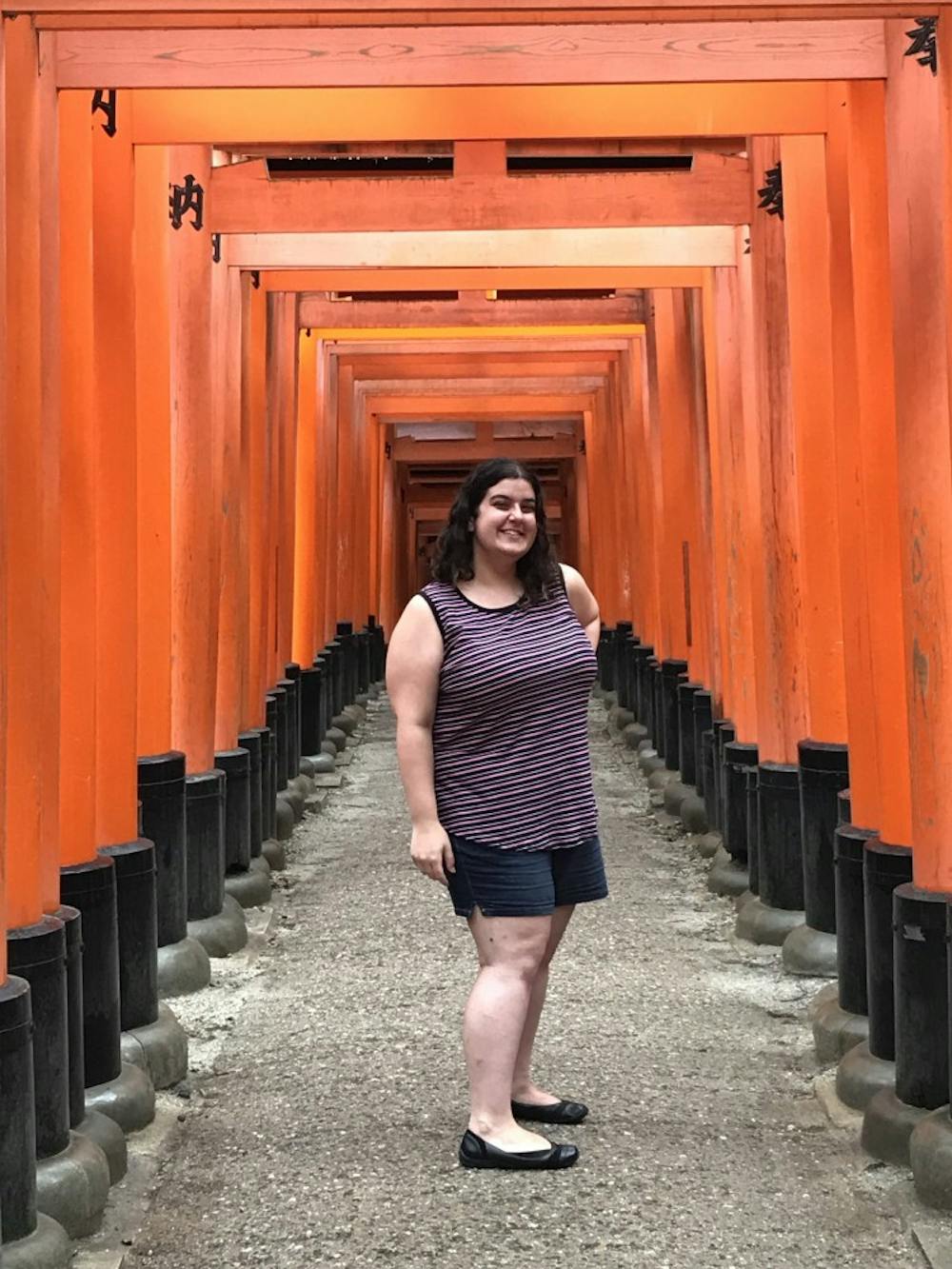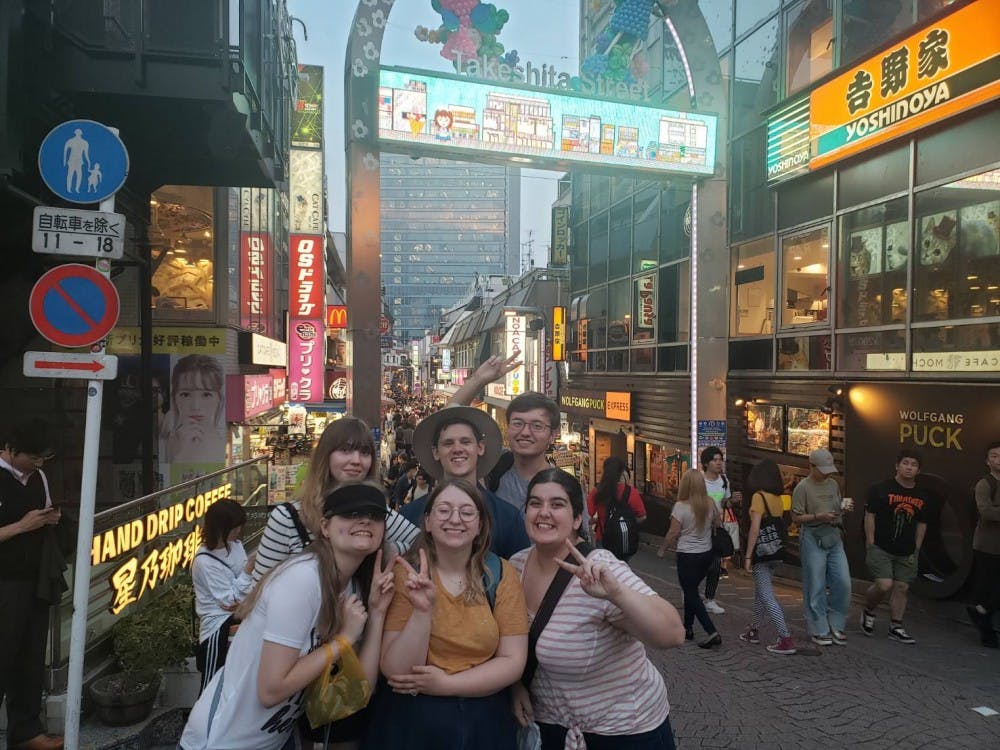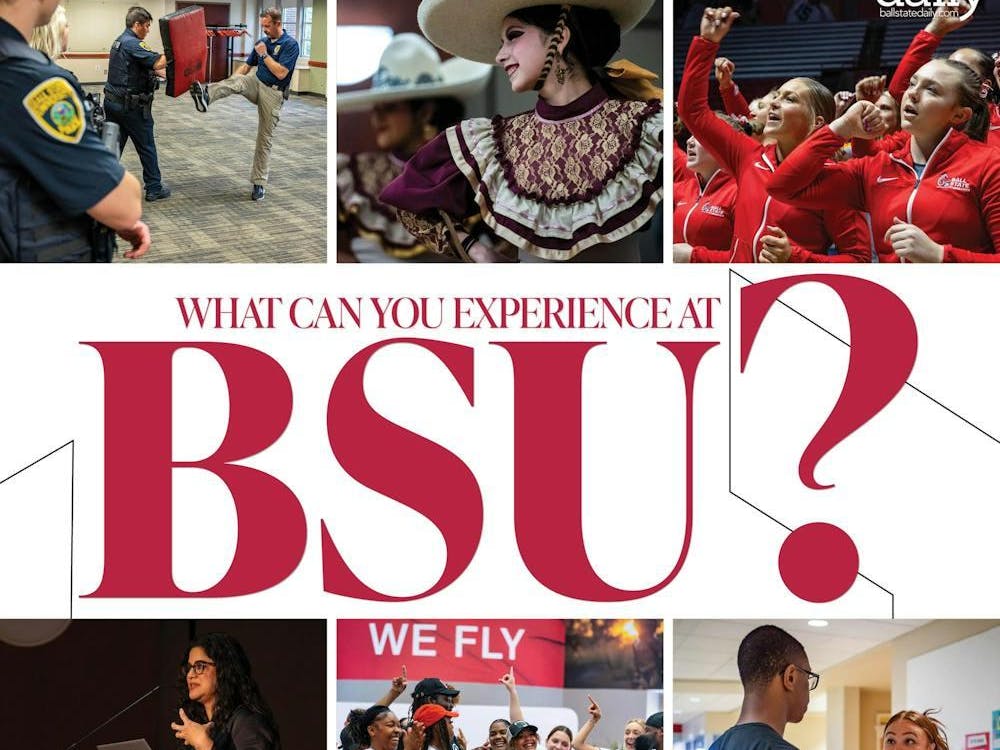Visit the Rinker Center to learn about potential programs and other resources required.

Elena Stidham is a senior journalism and telecommunications major and writes “Loud and Clear” for The Daily News. Her views do not necessarily agree with those of the newspaper. Write to Elena at emstidham@bsu.edu.
This June, I had the wonderful opportunity to study abroad in Japan. I have always wanted to go, and after I took my first Japanese language class, I thought it would be even more rewarding to experience the culture and practice my new skills.
I applied to go through the Kentucky Institute for International Studies (KIIS) program, and those of us that were selected traveled to multiple locations in Japan. We also got to try indigo dying handkerchiefs, calligraphy and flower arranging, as well as watch a kabuki performance.
I was lucky to be able to see Japan a year before the Tokyo 2020 Olympics, and I even bought a couple of official Olympic keychains to celebrate it. I could ramble on forever about my experiences, but these are the most prominent things I learned that anyone interested in studying abroad or even visiting Japan, should know:
1. I learned how to speak Japanese more fluently.
It sort of goes without saying, but while I was in Japan, I spoke Japanese nearly the entire time, and since I had only been studying the language for a year, the number of mistakes I made were in the hundreds. I was even in a program with people who had been studying the language for upwards of five to ten years, and they still made mistakes like I did.
My worst mistake was mixing up one sound that threw off my entire sentence. Instead of saying お腹がいっぱい “onaka ga ippai,” which is “my stomach is full,” I said お腹がおっぱい “onaka ga oppai,” which is “my stomach is boobs.” My host sisters, who were 5 and 8 years old, proceeded to collapse in laughter, while my host mom giggled as she tried to explain my mistake. I was mortified at the time, but now, I can laugh about it. I can also say I never made that mistake again.

Elena stayed with a host family, the Tanaka family, during part of her stay in Japan. Elena Stidham, photo provided.
2. You will more than likely get sick.
This came as a surprise to me, but once it happened, it made sense. You’re exposing yourself to new air and different germs, so you’re probably going to get sick. In my case, it was actually more than once. But through it, I learned that Japanese medicine is milder than American medicine, and there is an entire subculture of etiquette of protocol to follow when you’re sick. I had to wear a surgical mask every time I felt even slightly ill.
I would suggest bringing medicine from your home country, getting vaccinations and building your immune system before you leave for a new country.
3. If you get the chance to do a homestay, do it.
The KIIS program came with an eight-day required homestay, so I was very fortunate to experience staying with a host family during a portion of my time there. My program director said she wanted us to have a second family and home in Japan — which is exactly what I left with — but, at first, I was petrified to meet my host family. I was so scared of being disliked, scared of accidentally being rude and scared that I would do everything wrong. On the day I got to meet my host family, my host sisters each made me a welcome sign, and I realized how excited they were to have me.
By the end of the eight days, I had grown quite close to my family, to the point to where one of my host sister and I cried the day I had to leave. I got to experience a little slice of life I never would have seen living in an apartment on my own. I got to watch this family operate in a very similar, yet very different way to the one I grew up in.
It was one of the most enriching experiences of my life, and I still keep in touch with my host family. We write letters back and forth and send packages, as well as keep up with each other on Facebook and messaging apps. I miss them dearly, but I was so happy I had the opportunity to stay with them, even just for a little while.
4. It’s okay to allow yourself moments of negativity, to allow yourself to dislike something.

Elena visited visit Kyoto, Japan at Fushimi Inari Taisha, also known as the shrine of a thousand gates. Elena Stidham, photo provided.
This sounds completely contradictory, especially for an opportunity that’s supposed to be all about positivity. But, realistically, there will be things you won’t like, there will be times when you feel miserable.
When we went to Hiroshima, I hated it. Sure, the people were friendly, but the moment I stepped off the train, I felt like I was walking on a tomb. The history behind the city was something I could feel in my soul, and I couldn’t handle it.
There were also foods I tried and didn’t like — natto immediately coming to mind. I made a face that was, according to my 5-year-old host sister, extremely funny. My host mom also had me try Japanese beer, which I wasn’t a fan of. But those few things I didn’t like never stopped me from trying everything I could.
5. You will miss (and not miss) the weirdest and most specific things from home.
I never thought I would be excited about eating pizza, especially since I don’t normally like pizza. In Japan, however, pizza costed around $50 for an individual size, much less one to feed a small party. So, the first thing I did when I came back to the U.S. was devour a pizza.
The same applies to public trash cans. And Oreo cookies. And using a debit card. There were also things I didn’t miss from America, such as disgustingly dirty — and not really private — public restrooms, and people not waiting for others to depart from public transportation before getting on.
6. Post-study abroad depression is real and awful.
I cried about six times the night before I left Japan. Then, the morning when I left, I proceeded to cry on the train, the bus, the plane, in every airport, when I got home and a final time before I went to sleep that night. My heart went into a hollow place, and it still goes there sometimes. I’m missing people I lived with for weeks, and I’m trying to make recipes in my parents’ kitchen with ingredients we don’t have. A piece of my heart was left behind in Japan, and it will probably stay there for the rest of my life.
Even now, I still feel a constant tug on my heart strings that beckon me to go back. It’s like the feeling you get when you’re homesick, but it’s also different. It hurts. It hurts miserably. There’s no simple way to put it. You may have an aching depression when you come back, and it’s important to come to terms with it and work through it accordingly.
Looking back on my trip, I’m still learning. There’s so much I wish I had done and more I still want to do, and I’m currently working on applying for graduate school in Tokyo as well as trying to write for the Tokyo 2020 Olympics as an intern. No matter how I return, I’m excited to keep learning and growing, but most importantly, I can’t wait to go back.





